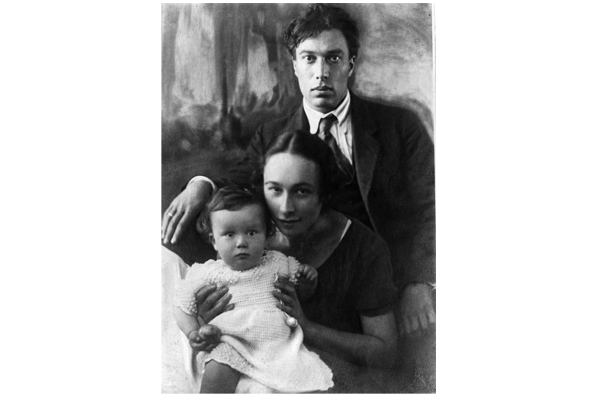In his preface to this anthology of brief memoirs, Robert Silvers suggests that its ‘invisible, tragic core’ is to be found in an account by Isaiah Berlin of one of his several meetings with Boris Pasternak. Pasternak told Berlin how Stalin had once telephoned him to ask him two questions: had Pasternak been present when Mandelstam read out his notorious ‘Epigram’ about Stalin; and was Mandelstam a ‘master’? Pasternak sidestepped these questions by saying that it was essential that he and Stalin meet: they needed to ‘speak about ultimate issues, about life and death’. This was in 1934, not long before Mandelstam’s first arrest.
Over a quarter of these essays, including all the longer ones, focus on writers from Russia, Poland and Czechoslovakia. Many, like the passage summarised above, touch on questions of the utmost moral, aesthetic and political importance. Joseph Brodsky, for example, writes of Nadezhda Mandelstam:
For decades this woman was on the run … The status of nonperson gradually became her second nature. She was a small woman … and with the passage of years she shrivelled more and more, as though trying to turn herself into something weightless, something easily pocketed in the moment of flight. The books, even foreign books, never stayed in her hands for long: after being read … they would be passed on to someone else — the way it ought to be with books.
Only in his very greatest poems does Brodsky write more vividly.
Philip Roth’s account of his many years of friendship with the Czech novelist Ivan Klima is equally revealing, especially when he recalls a conversation with Klima’s psychotherapist wife. She tells him that, since the Velvet Revolution, her psychotic patients have been getting better and her neurotic patients have been getting worse. She explains that the neurotics were unsettled by being faced with so many new choices, whereas psychotics simply suck up the prevailing mood — which was then one of exhilaration.
What is unsettling about this book is the contrast between its New York and its East European parts (Britain and Western Europe receive less attention — as in fact does most of the USA, apart from New York and New England). The essays by Americans about Americans often seem oddly lacking in any real sense of perspective. Thus John Thompson believes that Robert Lowell brought to English verse ‘technical mastery on a scale otherwise scarcely attempted in this century’. Has Thompson read Gerard Manley Hopkins, or even such technically brilliant fellow-Americans as Anthony Hecht and Richard Wilbur? Still more disconcertingly, he continues, ‘Fame, titles, great names attracted [Lowell] as they do all those whose know their names belong on the upper slopes.’ What, one wonders, would Emily Dickinson have made of that?
The New York Review of Books always devoted great attention to the literature of what, during the Cold War, was thought of as Eastern Europe. This was justified, but American writers may have been the poorer for feeling that it was only the Russians, Poles and Czechs who had the right to write about ‘ultimate issues’. It is mistaken to assume that real seriousness and depth of knowledge are to be found only in particular places.
Everyone seems, for example, to have assumed that through Isaiah Berlin they could gain a unique access to this realm where ‘ultimate issues’ could be discussed. This has had the curious effect of making every memoir about him — this collection includes one by the Russian cultural historian Aileen Kelly — sound almost identical.
Once we leave American literature and turn to American art, music or film, the book become more interesting again. John Updike’s memoir about the cartoonist Saul Steinberg is warm and charming. An essay on George Balanchine made me wish I knew more about ballet; the writers refer to Balanchine’s unique ability to make one ‘see the music and hear the dance’. And Jonathan Miller writes both wittily and sensibly about the comedian Lenny Bruce and his exaggerated faith in the sexual revolution:
He did feel, I’m quite sure, that if only prudery would relax we could screw our way to peace and prosperity for all. That … bigotry and suffering would not be heard for the swishing of the pricks.
Murray Kempton’s brief article about Frank Sinatra is no less memorable. First he tells how Ella Fitzgerald’s voice softened when the conversation turned to Sinatra and she said, ‘Frank. Just this little guy telling this story. That’s all you have to be.’ Then he tells how the Hollywood String Quartet found Sinatra to be both as demanding, and as appreciative, as Arnold Schonberg had been when they worked with him a few years earlier. Their cellist said, of working with Sinatra, that ‘you just enjoy every minute, because the man is so musical.’ All this is a valuable corrective to the cultural snobbery implicit in John Thompson’s remark about belonging ‘on the upper slopes’. It may also be valuable as a corrective to any unthinking worship of ‘the Russians’; we do not, after all, need to have survived murderous totalitarian regimes in order to have a story to tell.






Comments